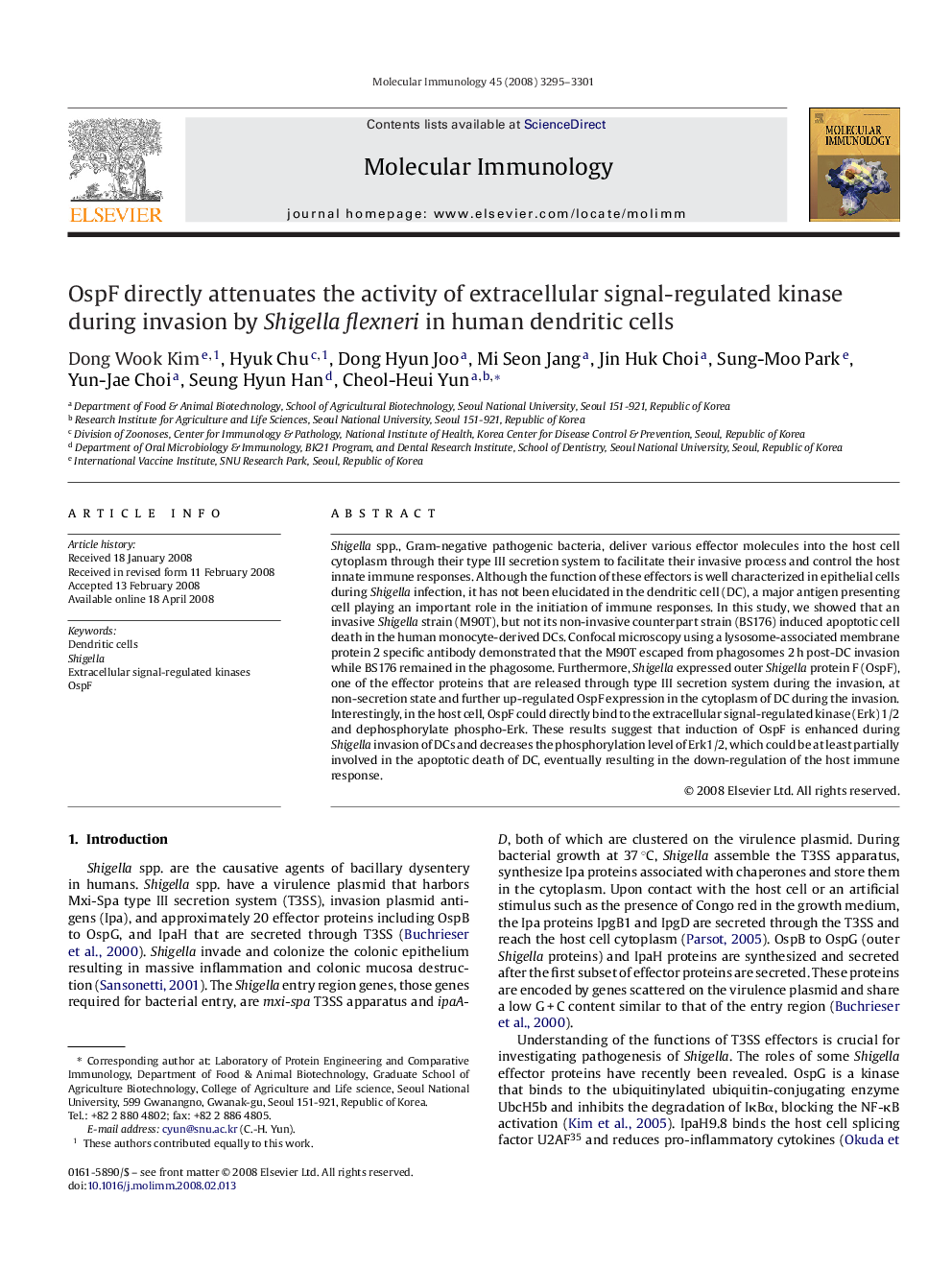| Article ID | Journal | Published Year | Pages | File Type |
|---|---|---|---|---|
| 2832666 | Molecular Immunology | 2008 | 7 Pages |
Shigella spp., Gram-negative pathogenic bacteria, deliver various effector molecules into the host cell cytoplasm through their type III secretion system to facilitate their invasive process and control the host innate immune responses. Although the function of these effectors is well characterized in epithelial cells during Shigella infection, it has not been elucidated in the dendritic cell (DC), a major antigen presenting cell playing an important role in the initiation of immune responses. In this study, we showed that an invasive Shigella strain (M90T), but not its non-invasive counterpart strain (BS176) induced apoptotic cell death in the human monocyte-derived DCs. Confocal microscopy using a lysosome-associated membrane protein 2 specific antibody demonstrated that the M90T escaped from phagosomes 2 h post-DC invasion while BS176 remained in the phagosome. Furthermore, Shigella expressed outer Shigella protein F (OspF), one of the effector proteins that are released through type III secretion system during the invasion, at non-secretion state and further up-regulated OspF expression in the cytoplasm of DC during the invasion. Interestingly, in the host cell, OspF could directly bind to the extracellular signal-regulated kinase (Erk) 1/2 and dephosphorylate phospho-Erk. These results suggest that induction of OspF is enhanced during Shigella invasion of DCs and decreases the phosphorylation level of Erk1/2, which could be at least partially involved in the apoptotic death of DC, eventually resulting in the down-regulation of the host immune response.
